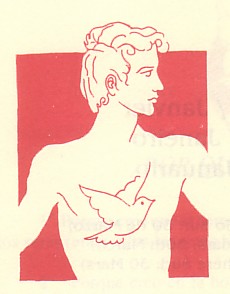School Day of Nonviolence and Peace – 30 January
NONVIOLENCE, 2 Feb 2015
Antonio C. S. Rosa, editor – TRANSCEND Media Service
The School Day of Nonviolence and Peace (or DENIP, acronym from Catalan-Balearic: Dia Escolar de la No-violència i la Pau), is an observance created by the Spanish poet Llorenç Vidal Vidal in Majorca in 1964 as a starting point and support for a pacifying and nonviolent education on a permanent basis.
Different as the first proposed by the UNESCO “Armistice Day” in 1948, the “School Day of Nonviolence and Peace” is observed on January 30 every year, on the anniversary of the assassination of Mahatma Gandhi, in schools all over the world. In countries with a Southern Hemisphere school calendar, it can be observed on 30 March. Its basic and permanent message is:
“Universal Love, Nonviolence and Peace – Universal love is better than egoism, nonviolence is better than violence, and peace is better than war.”
DENIP and the World Association of Early Childhood Educators collaborate to celebrate this event in schools worldwide. Former Director-General of UNESCO, Federico Mayor Zaragoza, has been promoting for decades the School Day of Nonviolence and Peace, saying: “We cannot achieve a sustainable development without a culture of peace.”
______________________________
Adapted from Wikipedia.
This article originally appeared on Transcend Media Service (TMS) on 2 Feb 2015.
Anticopyright: Editorials and articles originated on TMS may be freely reprinted, disseminated, translated and used as background material, provided an acknowledgement and link to the source, TMS: School Day of Nonviolence and Peace – 30 January, is included. Thank you.
If you enjoyed this article, please donate to TMS to join the growing list of TMS Supporters.

This work is licensed under a CC BY-NC 4.0 License.

Probably, love, especially “universal love” (agápē?), is one of the most difficult emotional and spiritual realms for humans to achieve. For example, when one’s loved one is being beheaded, or when one’s loved one is being burnt alive, it is a normal reaction for almost any humans to react it with strong anger and hatred to the perpetrator(s). Universal love means that this love envelopes the perpetrators of such cruel act as well.
When Jesus of Nazareth was crucified, he prayed on the cross, “Please forgive, Father. They (= those who made the decision to crucify him and/or those who were crucifying him) do not know what they are doing.” But how is it possible for ordinary humans, most of us, to react in such a noble manner? Ordinary humans react to vow to revenge to the perpetrator(s). After the Jordanian pilot was burnt alive by ISIS, the Jordanian government decided to execute two prisoners who were connected with ISIS.
On 10 August 1945, the day after the atomic bomb attack in Nagasaki, when a Christian priest identified the skulls and bones discovered in the garden of his mother’s house (that was also completely destroyed) were those of his mother and of his sister, he lost all his words and he decided to abandon his Christian faith.
Love is an extremely difficult theme. And “universal love”, among various kinds of love, is probably the most difficult kind of love. Where there is love, there is peace, and no violence. But how does one learn love, including “universal love”, especially after the extraordinary traumatic experience?